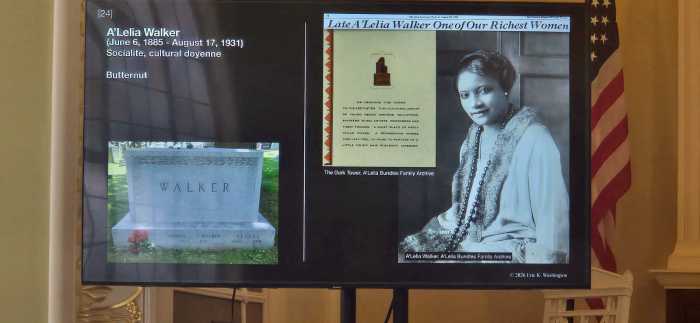Gavin Grimm, who brought suit against his high school in Gloucester County, Virginia. | ACLU.ORG
The US Supreme Court, in granting a Virginia school district a stay of a federal district court’s June 23 preliminary injunction, has blocked, for now, a transgender boy’s access to appropriate restroom facilities at the high school he attends. The August 3 decision by the high court freezes Judge Robert Doumar’s order that the Gloucester County School Board allow Gavin Grimm access to the boys’ bathroom while the trial court determines whether a policy denying such access violates Title IX of the Education Amendments Act of 1972.
What was unusual about the Supreme Court’s action was the brief concurring statement from Justice Stephen Breyer explaining that he had voted — along with the four conservative justices — to grant the application as a “courtesy” to those colleagues. Breyer’s liberal colleagues — Justices Ruth Bader Ginsburg, Sonia Sotomayor, and Elena Kagan — were prepared to deny the school board’s application for a stay.
Without Breyer’s fifth vote, the conservatives — Chief Justice John Roberts and Justices Samuel Alito, Anthony Kennedy, and Clarence Thomas — would not have been able to issue the stay.
Injunction against Gloucester County School Board stayed with help from a liberal justice
The lawsuit involves the hotly disputed question whether Title IX’s ban on discrimination “because of sex” by educational institutions prohibits a school from denying transgender students access to restroom and locker-room facilities consistent with their gender identity. Nobody is arguing that when Congress enacted Title IX more than four decades ago it contemplated this issue. And for much of the intervening period, courts in cases brought under various federal sex discrimination laws have rejected claims that they extend to gender identity discrimination.
It was not until relatively recently — as more teens identified openly as transgender and began transitioning while still in high school or earlier — that the issue heated up. Last year, the US Department of Education, charged with interpreting and enforcing Title IX, took the position that the ban on discrimination “because of sex” included discrimination based on gender identity.
The Department’s of Education’s interpretation, expressed first in response to litigation over restroom access in a suburban Illinois school district, was not entirely unprecedented, since several lower federal courts in recent years have ruled that discrimination because of gender identity is a form of sex discrimination. These include the San Francisco-based Ninth Circuit, in a case under the Violence against Women Act,, the Boston-based First Circuit, in a case under the Fair Credit Act, the Atlanta-based 11th Circuit, in a case interpreting the 14th Amendment’s Equal Protection Clause, and the Cincinnati-based Sixth Circuit, in an employment case under Title VII of the Civil Rights Act of 1964.
Those challenging DOE’s interpretation argue that, in staking out its new position, the department failed to undertake the necessary formal steps under the federal Administrative Procedure Act.
In the Gloucester County case, Grimm had been using the boys’ facilities without incident after his gender transition until some parents complained and the school board adopted a policy requiring him and other transgender students to use either the facilities consistent with the gender indicated on their birth certificates or a single-user facility, such as the bathroom in the school nurse’s office. Since medical authorities will not perform sex-reassignment surgery on minors, it is impossible for a transgender youth to alter the gender designation on their birth certificate in most states, with some ruling out such amended documentation altogether.
Grimm sued, claiming that the school district’s new access rule violated his rights under Title IX and the Equal Protection Clause. Judge Doumar initially rejected his Title IX claim, disagreeing with DOE’s interpretation of the 1972 law, and reserved judgment on the Equal Protection claim. Doumar, however, was reversed on April 19 by the Richmond-based Fourth Circuit Court of Appeals, which ruled he should have deferred to DOE’s interpretation of its own regulations and the statute. Doumar then issued the preliminary injunction and refused to stay it. On July 12, the Fourth Circuit also refused a stay request.
The school district’s application to the Supreme Court indicated it will seek review of the Fourth Circuit’s April 23 reversal of Doumar, but in the meantime wanted to preserve the status quo until there was a final ruling on the merits. Most pressingly, it wanted to ensure that its existing access rule would be in place when classes resumed this fall.
At the heart of these kinds of disputes is a fundamental disconnect on the part of those who reject, based on religious or other grounds, the idea that a transgender man is actually male and a transgender woman is actually female. Based on their political rhetoric and the arguments they make in court, it is clear such critics believe gender is fixed at birth and always coincides with anatomical sex, rejecting the whole idea of gender transition. Some premise their opposition on fears about safety, while others emphasize privacy, arguing that people have a “fundamental” constitutional privacy right not to confront transgender people in single-sex facilities.
On the other side of the issue are those who accept the experience of transgender people and the findings of scientific researchers who have found evidence that there is a genetic and/ or biological basis for transgender people’s strong feeling that their gender has been miscategorized at birth.
The Gloucester County case is only the most high profile of several pending lawsuits regarding the application of federal sex discrimination laws to bias based on gender identity and sexual orientation. A three-judge panel of the Seventh Circuit Court of Appeals recently ruled that precedent there required the dismissal of a sexual orientation employment discrimination claim under Title VII, and the plaintiffs are seeking rehearing by the full circuit sitting “en banc.” There are also two appeals pending in the New York-based Second Circuit seeking to reverse dismissals of sexual orientation discrimination claims under Title VII, as well as an appeal in the Atlanta-based 11th Circuit by an employer seeking reversal of a district court that refused to dismiss such a claim.
There are, as well, multiple lawsuits pending in North Carolina and Mississippi, where plaintiffs are challenging the so-called “bathroom” provisions of new state laws, as well as cases in Texas and Nebraska where plaintiffs are challenging the Obama administration’s interpretation of “sex discrimination” in either or both the sexual orientation and gender identity contexts. The district court in Mississippi refused to stay its injunction against the new anti-LGBT Mississippi law, and has been backed up by the New Orleans-based Fifth Circuit Court of Appeals. Mississippi will seek a Supreme Court stay, and in light of the Gloucester County stay, seems likely to receive one.
Justice Breyer, in explaining his “courtesy” vote, cited a 2008 case, Medellin v. Texas, where the four liberal members of the Court were frustrated in their effort to grant a stay of execution of a Mexican national while important underlying issues were resolved because no conservative justice would provide the necessary fifth “courtesy” vote. Breyer was apparently willing to extend a courtesy he himself had not received eight years ago.



































